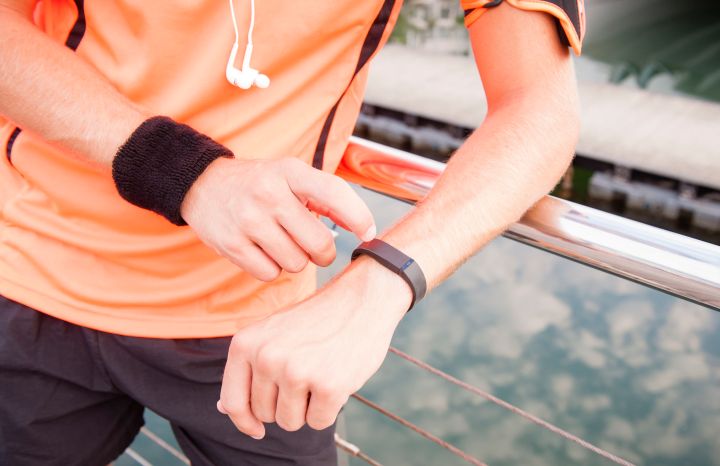
The answer is still unclear. The company does sell Fitbits hand over foot –21.3 million in 2015 alone, twice what it sold the year before– but repeat customers are hard to come by. It admits that nearly three in ten users stop using their Fitbit within a year, which puts a strain on the company to lure in new customers on a consistent basis.
It also faces strong competition from companies like Apple, whose smartwatch can do what Fitbit does and a whole lot more. This problem was well illustrated at CES 2016, where the company’s newest $200 fitness tracker –the Blaze– made its debut.
While Fitbit had high hopes for the device, those who had a chance to play with it (and the stock market) had another. The Blaze lacked attractive features like the GPS functionality of the Surge, and while looking like a smartwatch, it did little more than any other Fitbit. The stock quickly fell in the week following the show, and is now down 43 percent since the beginning of the year, even though the company has shipped about one million units of its latest device as of the beginning of last month.
Park: Apple’s doing it wrong
To the company’s credit, its CEO James Park remains defiant. In a recent interview with The New York Times, Park lamented the response to the Blaze, but didn’t suggest the company plans to do anything different anytime soon.
“We look at it from a consumer point of view,” Park said, arguing Apple approaches the smartwatch as a computing platform and “that’s really the wrong way to approach this category from the very beginning.” He says the plan was always to start simple and then expand the capabilities in later versions.
Digital Trends attempted to get some clarification on what Park considers the “right way” forward for wearables, but Fitbit declined comment. Based on recent history and comments from several wearable tech analysts, it’s not clear whether Park’s position is a smart idea, however.
Over the years, we’ve seen many companies try to focus on one thing while their competitors broaden their appeal. For example, Cisco’s Flip video cameras took great high-definition video, but smartphones did it just as well, if not better, in a much smaller size. Even eBooks and DVD players — both successful single-purpose devices — are not immune to consumer’s affinity to do more with a single device.
A study from 2013 showed that four in 10 e-reader owners and a quarter of DVD player owners used those respective devices less once they bought a tablet, which further drives home the point.
Analysts are no more kind to the future for Fitbit, or other devices that follow a similar strategy. “The market for single purpose devices is heading toward zero and there is nothing Fitbit can do to reverse the trend,” Global Securities Research analyst Trip Chowdry told clients in a February research note. “Fitbit has zero developer ecosystem, has zero AppStore and hence it has zero sustainability power.”
Baby steps into the smartwatch
Whether or not Park or his team at Fitbit listens is another story. While he told The New York Times that he did see high-end Fitbits eventually doing more than just tracking user’s steps, heart rate, and sleep, these devices likely will never be as full-featured as other smartwatches.
“I think one of the general knocks against smartwatches is that people still don’t know what they’re good for, so they’ve crammed everything in,” he argued.
To some extent, analysts we talked to agree. Gartner wearables analyst Angela McIntyre says she considers the Fitbit Blaze to be more of a sports watch rather than a smartwatch, and cautioned against trying to apply the single-purpose versus multipurpose argument to wearables in general.
“There is room for both, and it really depends on the usage case” as to whether or not it really matters, she told us in a Thursday interview. Regardless of the success of Fitbit’s devices themselves, the real value in the long-term might be the data that Fitbits collect from the hordes of people who wear them every day.
McIntyre pointed to the company’s work with health care providers, who might find it useful to track various health metrics to provide proactive care for example.”The data is an incredible growth opportunity,” she argued. “It could be beneficial for people who have specific diseases or health conditions.” Other analysts pointed to the data collected as well, with Forrester calling it a “gold mine.”
In other words? Despite the flack Fitbit’s getting in the press, in the end, everything will be just fine.


